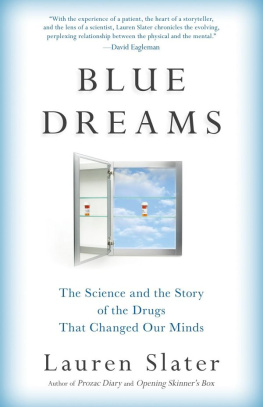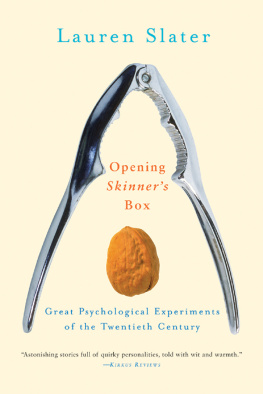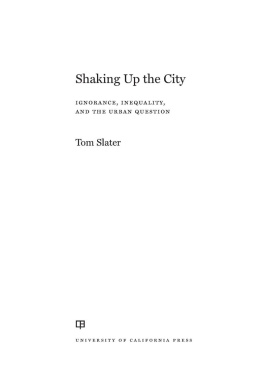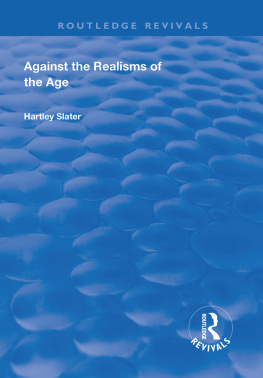Lauren Slater - Welcome to My Country
Here you can read online Lauren Slater - Welcome to My Country full text of the book (entire story) in english for free. Download pdf and epub, get meaning, cover and reviews about this ebook. year: 1997, publisher: Anchor, genre: Detective and thriller. Description of the work, (preface) as well as reviews are available. Best literature library LitArk.com created for fans of good reading and offers a wide selection of genres:
Romance novel
Science fiction
Adventure
Detective
Science
History
Home and family
Prose
Art
Politics
Computer
Non-fiction
Religion
Business
Children
Humor
Choose a favorite category and find really read worthwhile books. Enjoy immersion in the world of imagination, feel the emotions of the characters or learn something new for yourself, make an fascinating discovery.

- Book:Welcome to My Country
- Author:
- Publisher:Anchor
- Genre:
- Year:1997
- Rating:4 / 5
- Favourites:Add to favourites
- Your mark:
- 80
- 1
- 2
- 3
- 4
- 5
Welcome to My Country: summary, description and annotation
We offer to read an annotation, description, summary or preface (depends on what the author of the book "Welcome to My Country" wrote himself). If you haven't found the necessary information about the book — write in the comments, we will try to find it.
Welcome to My Country — read online for free the complete book (whole text) full work
Below is the text of the book, divided by pages. System saving the place of the last page read, allows you to conveniently read the book "Welcome to My Country" online for free, without having to search again every time where you left off. Put a bookmark, and you can go to the page where you finished reading at any time.
Font size:
Interval:
Bookmark:
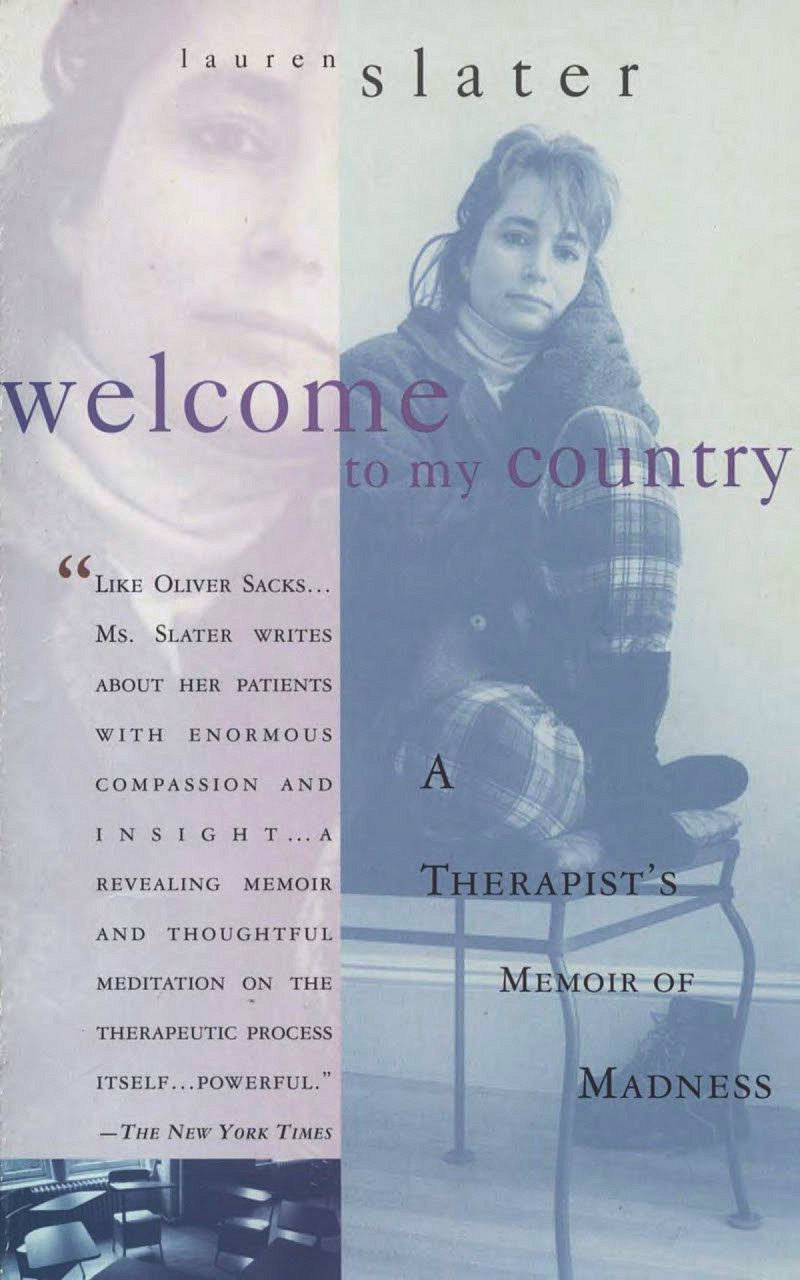
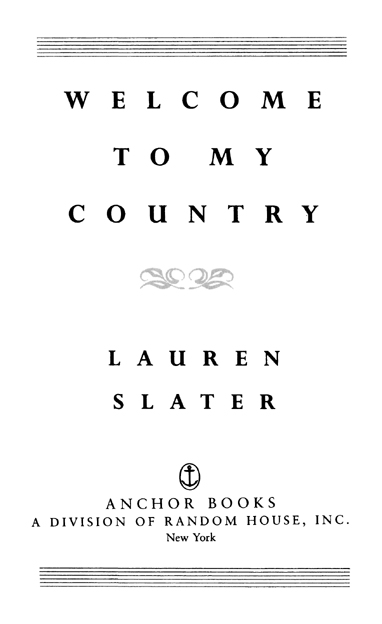
F IRST A NCHOR B OOKS E DITION , A UGUST 1997
Copyright 1996 by Lauren Slater
All rights reserved under International and Pan-American Copyright Conventions. Published in the United States by Anchor Books, a division of Random House, Inc., New York, and simultaneously in Canada by Random House of Canada Limited, Toronto. Originally published in hardcover in the United States by Random House, Inc., in 1996. The Anchor Books edition is published by arrangement with Random House, Inc.
Anchor Books and colophon are registered trademarks of Random House, Inc.
Library of Congress Cataloging-in-Publication Data
Slater, Lauren.
Welcome to my country / Lauren Slater.1st Anchor Books ed.
p. cm.
Originally published by Random House in 1996.
1. PsychiatryPhilosophy. 2. Slater, LaurenPhilosophy.
3. PsychiatryAnecdotes. 4. Slater, LaurenAnecdotes. I. Title.
RC437.5.S546 1997
616.89dc21 96-29849
eISBN: 978-0-307-82989-4
www.anchorbooks.com
v3.1
The tales related in this book are based on my true experience with real patients whom I have treated. However, in every case the patients name, physical characteristics, and specific biographical details have been altered so as to protect and respect the confidentiality of all involved. All involved have approved their disguises. In a few cases, the individuals represented are complete composite portraits, made up of many different images and from the many different stories I have heard in my practice as a psychologist. My aim has been to remain true to the subjective experience of mental illness as I have perceived it, while at the same time honoring the ethic of privacy inherent in any doctor/patient relationship.
In all cases where the story is based on an individual patient, however loosely (as opposed to a complete composite portrait), I have obtained written consent from the individual involved. In all cases, patients were eager to have aspects of their suffering, however disguised the form, shared with the wider world in the hopes that others might come to a better understanding of their plight.
For my seven sisters

PREFACE

Alfred Adler, one of the leading psychiatrists of the twentieth century, used to say that peoples earliest memories stand as a symbol for the conflicts that bring them to treatment. According to Adler, if you recall being on a beach at two years of age, walking close to the tarry tide and seeing a dead seagull with its eyes still startled open, then the work of therapy should begin here, with the experience of death and how it rises in you. Or if you recall the garage where your father worked, the smell of oil and silvery teeth of a saw, then this is where you must begin, unraveling the knots of violence that simmer between parent and child.
Where, I have often wondered, am I? I go back, winding through the gray canals of my brain, pause at the dollhouse, where the windows were as small as my milk teeth and a plastic baby slept in a cradle, its mouth a splash of red. Here? No, not here, back still farther, to a housekeeper with wiry hair and cake batter dripping from the wooden spoon she held. Open up, she said, and sugar sang through me. What a lovely place to start. But no, not here. Drop lower. And it is summertime, a season I have always hated, and trees wilt in the windless air. Here. Here. A cat cries high up on the hill next to our house. Air conditioners drip and weep, darkening the parched gardens beneath them, and if I press my feet to the ground I can almost feel the roots sucking up the moisture, the crimson cups of poppies asking for more. My sister, blond and dressed in frills, comes out the door, takes my hand, and leads me down the silent street. I dont know language yet, and so the only words I hear are the mixed-up alphabets of birds and motors, murmurs and scary shrieks. This is the world of the child.
And my sister leads me down the street. She is two years older than I and possessed of wonderful talents: the talent of talk, of balanced walk, of drinking gracefully from glass cups. I think she is singing to me, but when I look up at her face I cant connect the movement of her lips with the melody in the air. Her lips open, and moments later notes float into my consciousness, as if I were seeing a movie where voice and action werent synchronized. And even though Im only two or so, a feeling of separateness comes over me, a knowledge of the rifts between music and its maker, between sun and what it strikes, between her hand and mine, which are woven together but which suddenly I cant really feel.
She stops, bends over, grasps a flower growing behind a neighbors fence. Perhaps it was a ladys slipper or a mandrake, white with lanky tendrils, each one knobbed at the tip. She buries her face in the plenitude and then stretches the stem toward me. Here. Smell. But I cant. The heat clutches at me. The sky doesnt make sense. I try to smell but suddenly my nose is a closed canal and the world grows gray and tiny. The flower appears as if from a great distance, stiff and artificial, utterly devoid of comfort. Here. Smell. The stem shrieks; the petals are dead wax. This is what it means to lose the world, moments when the cord between you and someone else withers.
Yes, Adler might say. So your search has been one of connection, an attempt to repair the rifts between yourself and others. Yes, I would respond, and while I recognize that as a central struggle for all humankind, I believe, for a variety of reasons that have to do with my own life, that I am particularly sensitive to those rifts because they come to me as disembodied states, extreme dissociations.
So. My search, and the searches of separate others, represented here in episodes from my work as a psychologist. My patientsborderline personalities, sociopaths, bulimics, schizophrenics of every typeare foreign, tropical, green roses and striped plants that are hard to understand. I seek their scents and sounds, to enter deeply into their cupped, closed worlds because that is the struggle lying at the core of me. And I have learned that the only way to enter anothers life is to find the vector points where my self and another self meet. If, one summer day a long time ago, I could have understood my heart as something petaled with blood or my bones as stems and roots, then perhaps the mandrake would have lived for me. Similarly, there is no way, I believe, to do the work of therapy, which is, when all is said and done, the work of relationship, without finding your self in the patient and the patients self in you. In this way, rifts within and between might be sealed, and the languages of our separate lives might come to share syllables, sentences, whole themes that bind us together.
These, then, are not just stories of my patients; they are stories as well of myself, of interactions and conflicts, of the way one psychologist watches her past meet her present, coming to see herself in the complicated lattice of her patients lives. These are stories of reflections and routes, including the route I have travelled to cope with my own psychiatric difficulties. Psychiatry and psychology, while paying homage to the significance of empathy and connection, have done little in the way of really revealing themselves and their practitioners, and connection is at least in part based on revelation, the stripping off of the mask. Especially in this time of managed care, more emphasis seems to be placed upon medication and the quick amelioration of symptoms, short-term work and privatized, profit-making clinics, than upon the lovely and mysterious alchemy that comprises the cords between people, the cords that soothe some terrors and help us heal.
Font size:
Interval:
Bookmark:
Similar books «Welcome to My Country»
Look at similar books to Welcome to My Country. We have selected literature similar in name and meaning in the hope of providing readers with more options to find new, interesting, not yet read works.
Discussion, reviews of the book Welcome to My Country and just readers' own opinions. Leave your comments, write what you think about the work, its meaning or the main characters. Specify what exactly you liked and what you didn't like, and why you think so.

